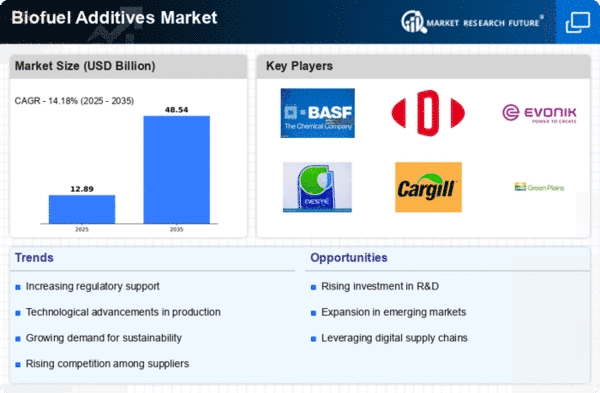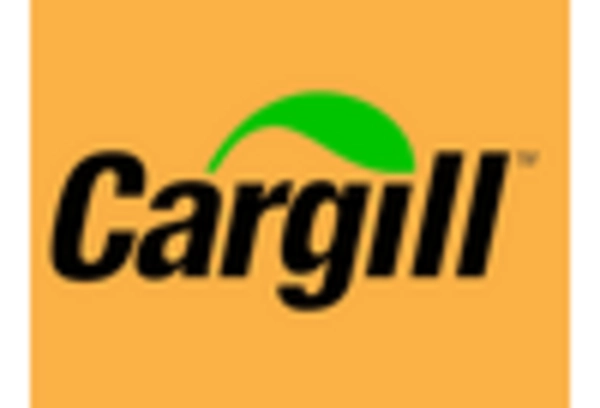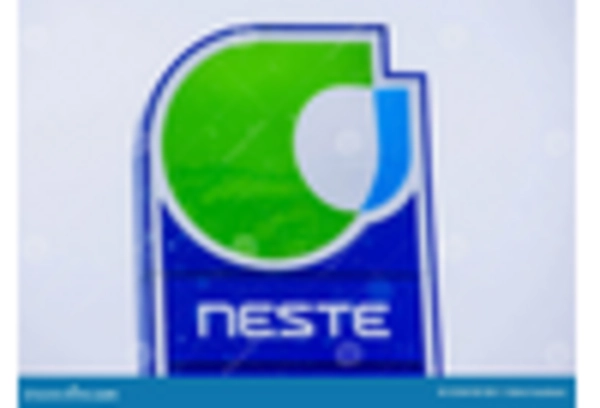Market Analysis
In-depth Analysis of Biofuel Additives Market Industry Landscape
The Biofuel Additives Market operates within a dynamic framework, influenced by various factors that shape its growth and trends. Understanding these market dynamics is crucial for businesses and stakeholders navigating the complexities of the biofuel additives sector. Market dynamics are closely tied to governmental policies promoting renewable energy sources and biofuel usage. Incentives, subsidies, and mandates for biofuel blending influence the demand for additives that enhance biofuel performance. The overall expansion of biofuel production, including biodiesel and ethanol, drives the demand for additives that improve fuel stability, efficiency, and combustion characteristics. Increasing biofuel consumption in the transportation sector contributes to market growth. Stringent environmental regulations on emissions and fuel quality impact the biofuel additives market. Additives that help biofuels meet regulatory standards for emissions and performance gain prominence. The availability and pricing of biofuel feedstocks, such as vegetable oils, animal fats, and crops like corn and sugarcane, influence production costs and, consequently, market dynamics. Fluctuations in feedstock supply can affect the overall biofuel additives market. Ongoing research and technological advancements lead to innovations in biofuel production processes and additive formulations. The biofuel additives market is closely linked to trends in the automotive industry, particularly the development of flex-fuel vehicles and engines designed for biofuel use. Consumer preferences for eco-friendly fuel options influence the demand for biofuel additives. Economic conditions impact the affordability and willingness of consumers and businesses to invest in biofuel technologies and additives. Market dynamics are influenced by economic cycles, affecting both biofuel production and consumption. Companies investing in research and development to create innovative biofuel additive formulations gain a competitive edge. Partnerships with research institutions and collaborations within the industry contribute to advancements in biofuel additive technology. Increasing awareness among consumers about the environmental benefits of biofuels and the role of additives in enhancing their performance influences market dynamics. Consumer acceptance and demand for cleaner and sustainable fuel options contribute to market growth. Adherence to industry certifications and standards for biofuels and additives is essential for market players. Compliance with recognized standards ensures product quality and market acceptance, shaping the overall dynamics of the biofuel additives sector.


















Leave a Comment